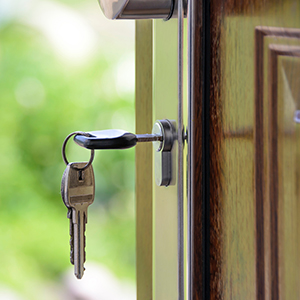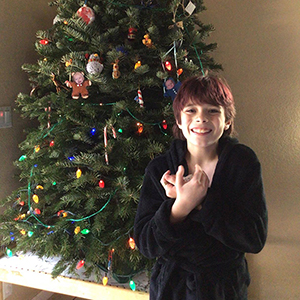
How to Pay for a Home in Santa Cruz
By Seb Frey

The Santa Cruz real estate market is being reshaped by out-of-towners moving in now that so many people can work anywhere they choose. However, it seems not to have occurred to many people here that they can do the same thing: get an “out of town” job without the commute out of town. There are many well-paying jobs “over the hill” that no longer require a daily commute.
 To write this month’s article, I called my preferred mortgage lender and had a good long chat. He’s one of the top mortgage brokers in town and works with buyers of all stripes. Most of his client’s aren’t platinum-plated Silicon Valley tech elites, they’re mostly ordinary folks from all walks of life who happen to have the wherewithal to actually buy a home in Santa Cruz.
To write this month’s article, I called my preferred mortgage lender and had a good long chat. He’s one of the top mortgage brokers in town and works with buyers of all stripes. Most of his client’s aren’t platinum-plated Silicon Valley tech elites, they’re mostly ordinary folks from all walks of life who happen to have the wherewithal to actually buy a home in Santa Cruz.
I started by asking about down payment assistance & first-time buyer programs.
It was as I had feared: there’s not much available. The County of Santa Cruz and City of Watsonville still have a first-time buyer program called HOME, but it tops out at a purchase price of $543,000 which limits it to condos and smaller townhomes. CalHFA also offers up to 3% Down payment assistance but charges a premium to participate which essentially washes out any benefit. Outside of this, there is effectively no public assistance for down payments available in Santa Cruz county today.
So then I wanted to know where everyone is getting these down payments, since the government isn’t handing out money.
He was quick to explain that most first-time home buyers don’t have big down payments. He said he sees a lot of 3%, 3.5% and 5% down buyers. But even 5% down on a $700,000 purchase is $35,000 – and to that, you’ll need to add another $10-$14K for closing costs. We’re talking $50K as the minimum cash on hand most folks will need to get into a property in Santa Cruz, and that’s a big nut for most people.
Before I get to the down payment, I want to address the closing costs.
These are things like the appraisal fee, loan origination fee, underwriting fee, pre-paid interest, loan discount points, and pre-paid property tax and insurance. The good news here is that most sellers will be happy to pay some or all of these costs for you – with a sufficiently high purchase price. By having the seller pay these, you are in effect rolling the closing costs into the loan amount. It was much more common 10 years ago, but still today, about 20% of Santa Cruz buyers ask the seller to pay some or all of their closing costs.
Now, about that pesky down payment.
First time buyers get their down payments from four main sources: savings, inheritance, gift money, and taking a loan from the contributions they’ve made to their retirement plan.
Savings
A common lament among would-be homebuyers is that it’s nearly impossible to save up for a down payment when rents are eating up 50% of their income. As unpalatable as this may sound, many families make the decision to move back in with a parent or other family member to save on rent. If you’re saving $2-3K/month in rent, in a couple of years, you will have saved $50-$70K.
Inheritance or Gift Money
This happens more than you’d think…but what happens even more frequently is that a parent or other relative gives gift money which is used as a down payment. Contrary to popular belief, there isn’t really a limit on gift money – unless you plan to gift more than $11 million in your lifetime, in which case, there’s a limit. This money is received tax-free and is a great way to come up with a down payment.
Understandably, many adult children are hesitant (to say the least) to ask their parents for help with a down payment. However, this is a conversation that happens millions of times per year, going back many decades and spanning continents. You may find that your parents or “rich uncle Chris” may be more willing than you believe to help you out in this regard.
Many parents might not have tens of thousands of dollars to gift, so a lot of them turn to tapping into their home’s equity, either with a HELOC (home equity line of credit), cash out refinance, or perhaps a reverse mortgage.
Retirement Plan
Lastly, many homebuyers tap into their retirement accounts for the down payment. You can withdraw up to $50K loan from your retirement account to use for the down payment of a home, with many years to pay it back and no impact on your qualifying with the new payment.
I should mention that some homebuyers qualify for VA (Veterans Administration) loans, which have a $0 down payment requirement with no mortgage insurance – and there’s no fixed loan limit for a VA loans (you just have to qualify for the payment). As it stands, the VA loan is the only zero-down loan option most buyers might have access to.
Once you’ve solved the down payment part of the problem, the next problem would-be buyers have is qualifying for a big enough loan to purchase a home that will work for them. One thing that can help with this is having a good credit score. People with good credit will enjoy mortgage interest rates that are 0.5-1.0% lower than people with bad credit…which means a buyer with good credit can qualify for a larger loan with the same monthly income as someone with bad credit.
Another issue which I touched on in last month’s article is that buyers have other debts: credit cards, car loans, and student loans are the three biggies. All of these impact your debt to income ratio and reduce the amount of mortgage you can qualify for. Unless you have a really healthy income, eliminating these other debts will likely be a make-or-break factor in terms of your ability to qualify for a large-enough loan. While you are working to save for a down payment you should simultaneously be working to pay off whatever other debts you have.
Many would-be homebuyers again reluctantly turn to their family for help with the mortgage payment – at least for the purposes of qualification. You can ask a relative to co-sign the loan for you – which is a big ask, because it makes them responsible for the payments if you fail to. It’s an option that many turn to, because in some cases there is simply no other way forward.
The Santa Cruz real estate market is being reshaped by out-of-towners moving in now that so many people can work anywhere they choose. However, it seems not to have occurred to many people here that they can do the same thing: get an “out of town” job without the commute out of town. There are many well-paying jobs “over the hill” that no longer require a daily commute.
Contrary to popular belief, not all of these jobs require IT skills or an advanced degree. It may be easier than you think to quickly boost your income to where it is sufficient to qualify for a mortgage for at least a modest home in Santa Cruz.
After expending so much ink, I wish I’d been able to share the magic bullet that will let you buy an affordable home without a lot of sweat and anguish. The truth is that unless you have plenty of cash and a very strong income, there’s no easy way to become a homeowner in Santa Cruz county.
This explains the exodus out of the county.
Many are moving to Sacramento, or out of state to Oregon, in search of more affordable housing. Others are looking closer to home, like Prunedale, Seaside/Marina, and Salinas.
I know that leaving Santa Cruz is rarely an easy decision to make; I’ve been watching people struggle with the idea of leaving town since the early 1990’s for this very reason. But if you intend to raise a family, I believe home ownership should absolutely be a part of the plan.
There are many reasons why home ownership is so important. In next month’s article, I will discuss what makes home ownership so beneficial, for reasons that have little or nothing to do with finances. I think you’ll be surprised!


You May Also Like

Face to Face School
January 1, 2021
Saving the Monarchs
January 1, 2021

